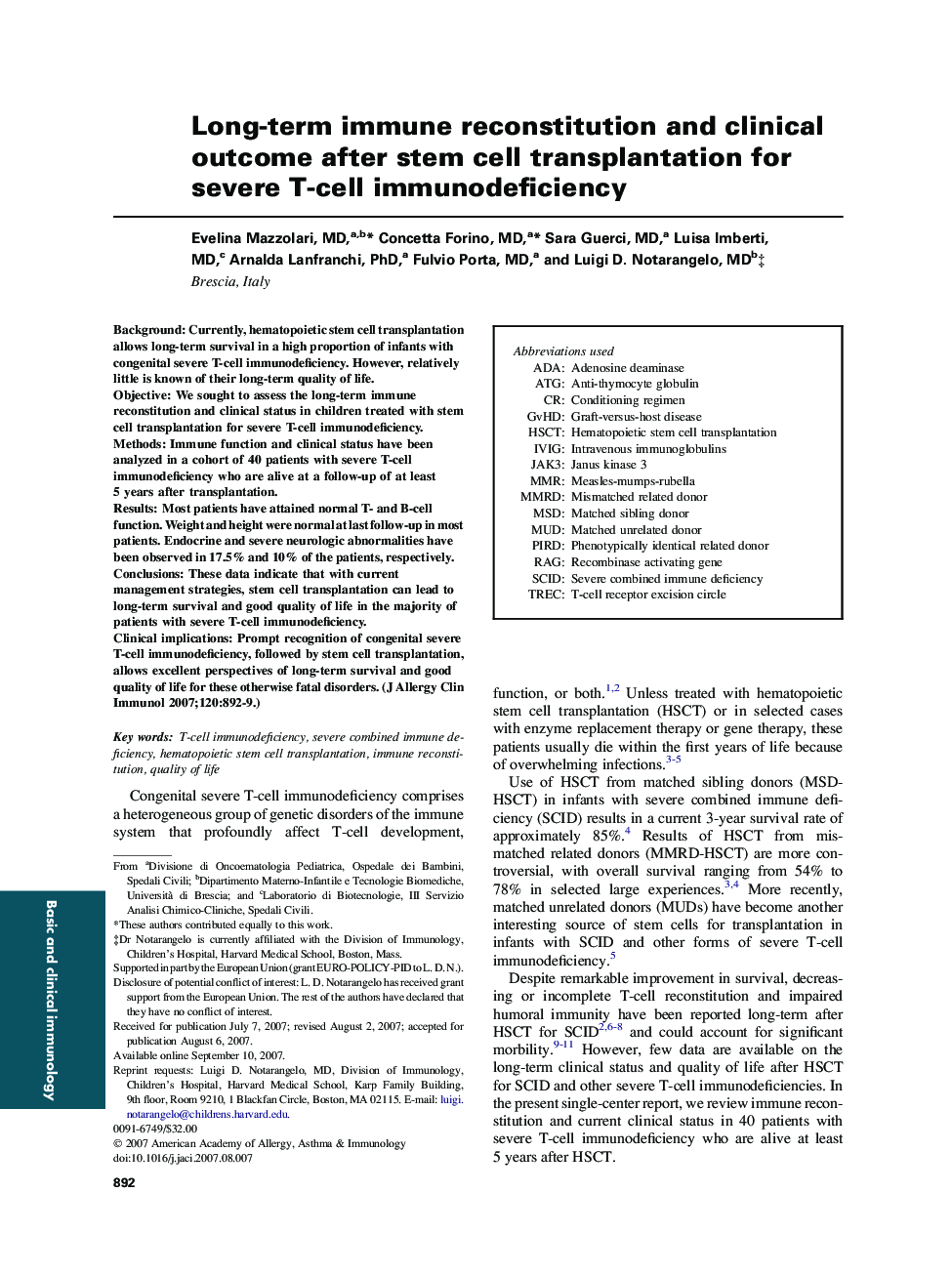| Article ID | Journal | Published Year | Pages | File Type |
|---|---|---|---|---|
| 3203204 | Journal of Allergy and Clinical Immunology | 2007 | 8 Pages |
BackgroundCurrently, hematopoietic stem cell transplantation allows long-term survival in a high proportion of infants with congenital severe T-cell immunodeficiency. However, relatively little is known of their long-term quality of life.ObjectiveWe sought to assess the long-term immune reconstitution and clinical status in children treated with stem cell transplantation for severe T-cell immunodeficiency.MethodsImmune function and clinical status have been analyzed in a cohort of 40 patients with severe T-cell immunodeficiency who are alive at a follow-up of at least 5 years after transplantation.ResultsMost patients have attained normal T- and B-cell function. Weight and height were normal at last follow-up in most patients. Endocrine and severe neurologic abnormalities have been observed in 17.5% and 10% of the patients, respectively.ConclusionsThese data indicate that with current management strategies, stem cell transplantation can lead to long-term survival and good quality of life in the majority of patients with severe T-cell immunodeficiency.Clinical implicationsPrompt recognition of congenital severe T-cell immunodeficiency, followed by stem cell transplantation, allows excellent perspectives of long-term survival and good quality of life for these otherwise fatal disorders.
